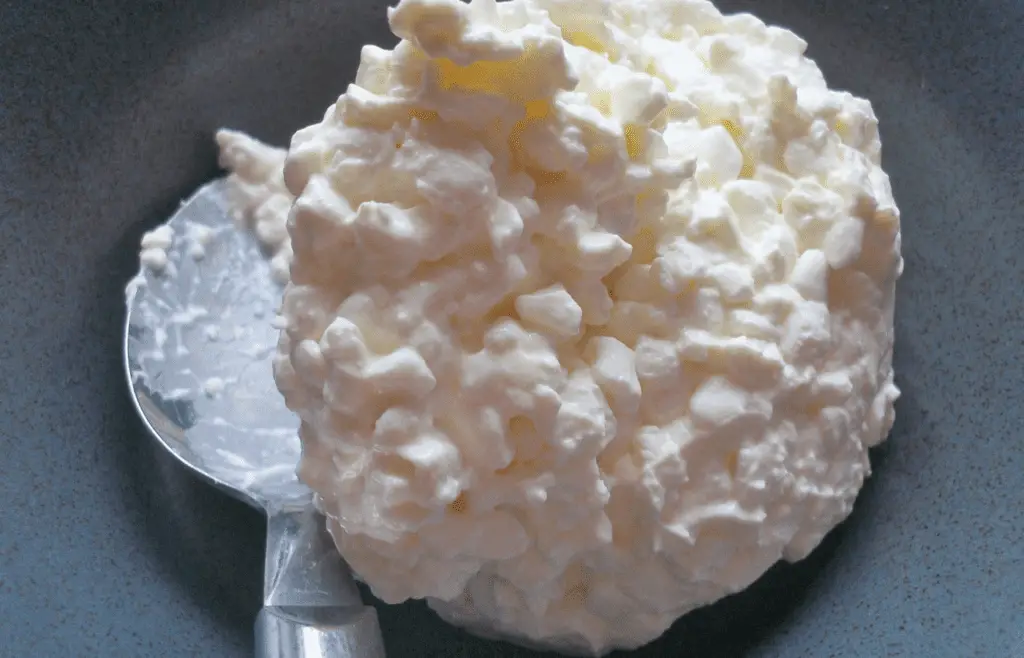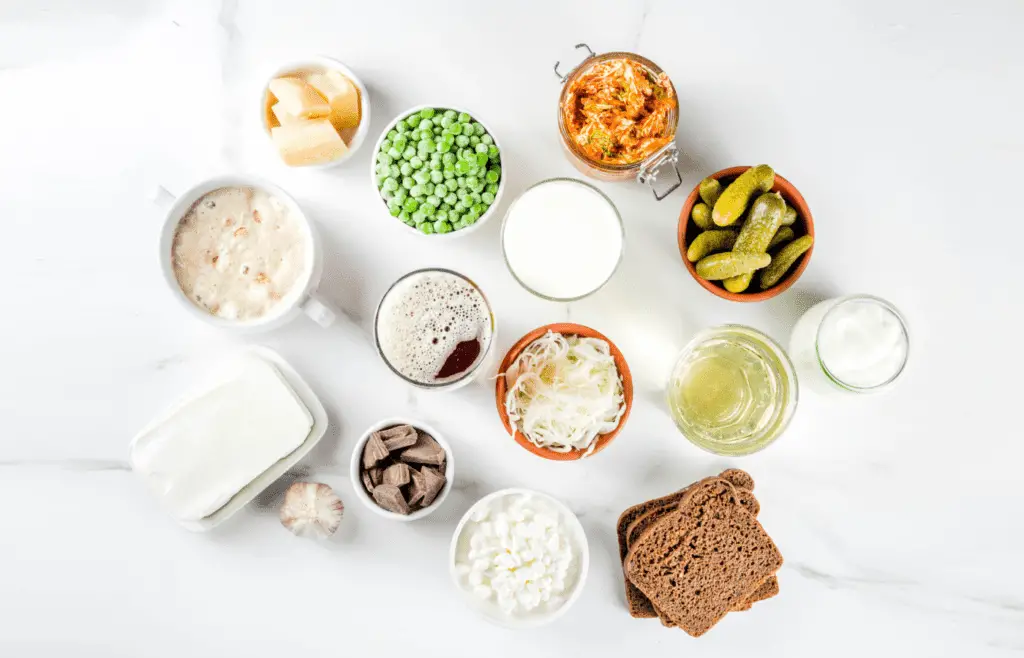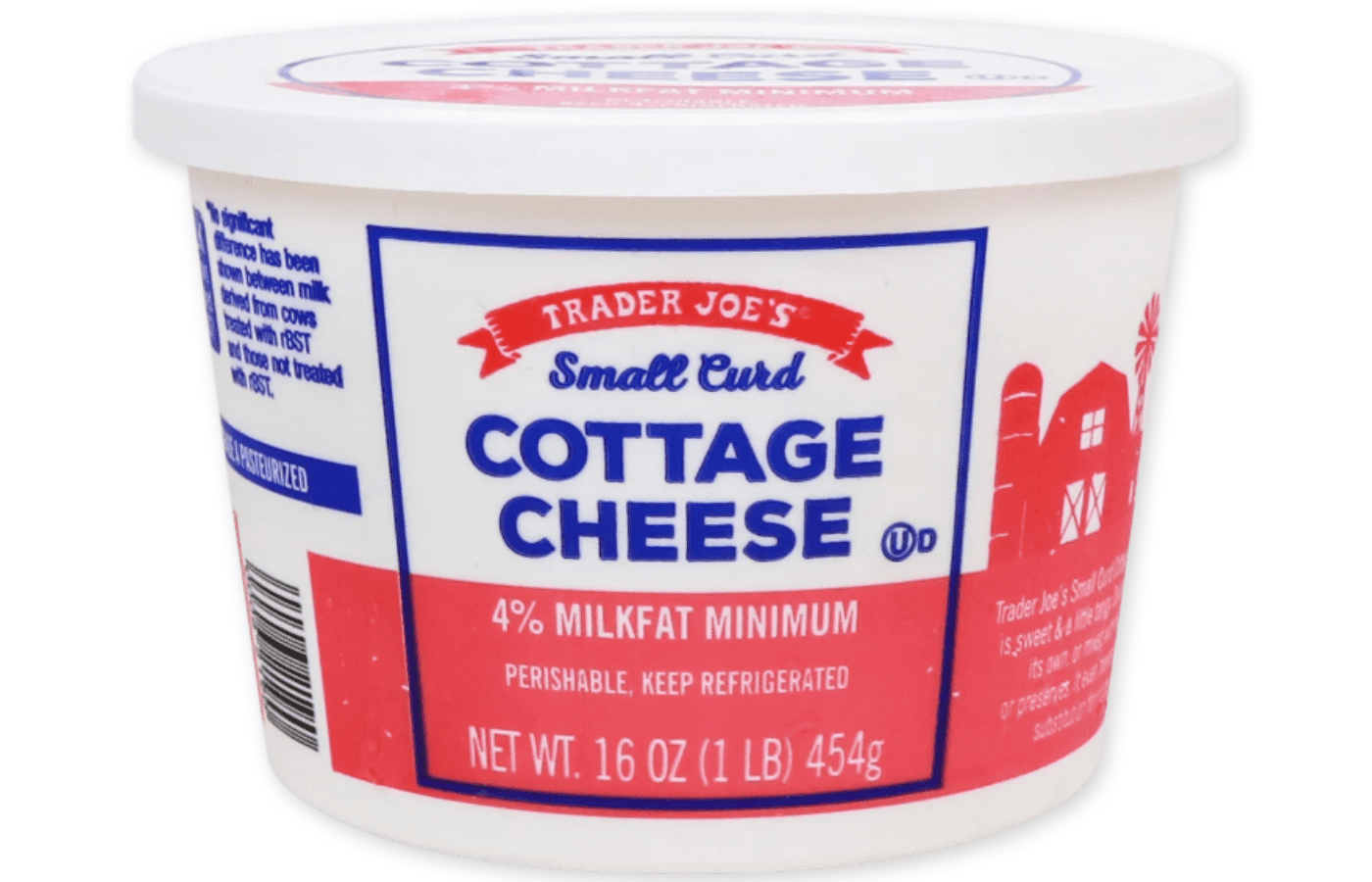Trader Joe’s is known for having a wide selection of affordable, delicious food products under their own namesake while also selling a variety of other brands. Cottage cheese is one such product produced by Trader Joe’s.
Trader Joe’s has a few cottage cheese products, but they don’t all have probiotics. Trader Joe’s Low Fat Cottage Cheese does contain live cultures, otherwise known as probiotics. Other Trader Joe’s cottage cheese products, such as the small curd cottage cheese or plain cottage cheese are still tasty despite not having probiotic benefits.
Cottage cheese can accompany a healthy breakfast or lunch or add some creaminess to a variety of recipes. Not all cottage cheese contains probiotics, however.
Understanding Probiotics
Probiotics or live cultures are beneficial bacteria that can help your digestive system work efficiently. Your body produces these on their own, but not everyone produces enough. When you get sick or have a health condition that impacts your digestive system, you may benefit from adding probiotic-rich foods to your diet.
Probiotics do a lot for your digestive health as well as your overall health. They can help your body digest foods more efficiently, eliminate harmful bacteria from your body, and help your body make proper use of any medications or vitamins you consume. Probiotics are also shown to help reduce the prevalence of urinary concerns and prevent diarrhea.
There are multiple types of probiotics and they each serve their own purpose. Lactobacillus is often seen in foods, producing lactic acid that helps kill off bad germs and bacteria.
Bifidobacteria is also found in foods and serves multiple beneficial purposes. L. acidophilus is another probiotic seen in many dairy products that helps reduce harmful vaginal and intestinal bacteria.
Trader Joe’s Cottage Cheese Product

Trader Joe’s produces a low-fat cottage cheese, a small curd cottage cheese, and a plain cottage cheese. They have also occasionally sold flavored cottage cheeses, and they also have an organic cottage cheese option.
Their cottage cheese products contain 4% milkfat at minimum, which means it offers a satisfying amount of fat to help keep you full for longer.
There isn’t much information regarding where their cottage cheese is made, as Trader Joe’s often circulates their offerings multiple times per year. That means that not all Trader Joe’s cottage cheese products are available all the time in stores.
Presence of Probiotics in Trader Joe’s Cottage Cheese
It appears that the low-fat cottage cheese produced by Trader Joe’s is the only cottage cheese under their brand that contains probiotics.
It contains both L.acidophilus and L.bifidus. Both of these probiotics together help to maintain a well-functioning digestive system while helping your body metabolize the lactose in dairy products.
Many other types of cottage cheese contain the same two probiotics. Some brands of cottage cheese will also have lactic cultures alongside L.acidophilus and L.bifidus.
Lactic cultures have a host of health benefits from helping your body pull more nutrients from food to helping reduce the development of intestinal infections.
Benefits of Probiotics in Cottage Cheese

Extensive studies into probiotics suggest a wide variety of potential health benefits mainly surrounding gut health.
They are recommended for those who may experience bowel and urinary concerns, and they have even been linked to delayed childhood allergies and supporting a healthy immune system.
Dairy products contain some fantastic nutrients but some people are sensitive to lactose. The probiotics in cottage cheese are able to make it much easier for the body to break down and digest lactose.
Furthermore, the types of probiotics added to cottage cheese can help prevent common gastrointestinal concerns such as bloating, gassiness, and constipation.
Outside of probiotics, cottage cheese contains a solid amount of protein and calcium. Since most cottage cheese has very few calories, it’s often touted as a fantastic snack that can satisfy hunger and promote healthy weight loss.
With everything in cottage cheese, it’s beneficial for your heart, your gut, your bones, and your muscles.
Consumer Attitudes Towards Probiotics in Food
Probiotics are often misunderstood, and not all health experts agree as to whether they actually offer positive health benefits. Probiotics also don’t work for everyone as the gut is a very complex part of the body that doesn’t operate the same way for every person.
The good news is that probiotics aren’t shown to cause any harm, though they aren’t recommended for everyone.
Probiotics can be found in foods or can be taken as supplements. In order to know whether you should eat probiotic rich foods or not will depend on your particular health needs.
You may not need supplements unless your doctor specifically advises you to.
Eating probiotic-rich foods can give you the right dose of the gut-friendly bacteria and as long as they don’t cause you any side effects, it’s better to opt for foods that have probiotics if you like them.
Frequently Asked Questions
Does Organic Cottage Cheese Have Probiotics?
Whether a cottage cheese is organic or not doesn’t determine if it has probiotics in it. Probiotics aren’t naturally occurring in dairy, so they are added into the product before it’s finished.
Does Cottage Cheese Have the Same Probiotics as Yogurt?
Cottage cheese has some of the same probiotics that are often used in yogurt. This includes L.acidophilus and L.bifidus. However, yogurt also often contains L.casei, Lactobacillus bulgaricus, and Streptococcus thermophilus.
Because of the way yogurt is made, you’re more likely to find probiotics in yogurt than you are in cottage cheese.
Final Thoughts
Most of Trader Joe’s cottage cheese selection doesn’t contain any probiotics, but their low-fat option does. To be fair, not all cottage cheese in general contains probiotics.
Since providing a probiotic-rich food product isn’t the priority of Trader Joe’s, they don’t make any particular recommendations for how to consume it.
Probiotics work differently for everyone, but evidence does suggest they can support and promote a healthy gastrointestinal tract and immune system. If you can find a cottage cheese you like with added probiotics, it can become a great part of a healthful diet.

